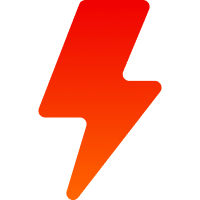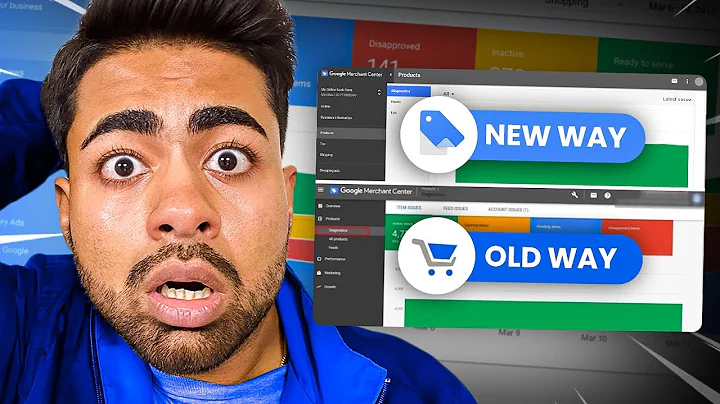Boost Your Shopify Store's SEO with This Essential Checklist
Table of Contents:
- Introduction
- Getting a custom domain
- Website speed optimization
- Setting up Google Analytics and Webmaster Tools
- Optimizing title and meta description
- Collecting product reviews
- Image optimization
- Using SEO apps for optimization
- Checking for broken links
- Optimizing link naming
- Performing keyword research
- Conclusion
Introduction
In this article, we will discuss the importance of SEO optimization for your Shopify store and provide a checklist of 11 essential points to consider before launching or optimizing your store. These points will help you improve your store's search engine rankings, increase visibility, and attract organic traffic. By implementing these strategies, you can ensure that your Shopify store is fully optimized for SEO and set up for success in the competitive online marketplace.
Getting a Custom Domain
The first point on our Shopify SEO checklist is to obtain a custom domain. This will not only make your store appear more professional but will also help it rank under its own category. Many new stores start with a "DOT myshopify.com" domain name, which can hinder SEO efforts. Acquiring a custom domain through Shopify or external domain providers such as Namecheap is a simple and affordable process that significantly improves your store's SEO potential.
Website Speed Optimization
Website speed plays a crucial role in SEO rankings. Google tends to favor faster websites as they provide a better user experience. To optimize the speed of your Shopify store, you can utilize tools like GTmetrix to test your site's performance and identify any slowdowns. By reducing image sizes, optimizing code, and implementing caching techniques, you can improve your website's loading time and enhance its SEO performance.
Setting up Google Analytics and Webmaster Tools
To measure the effectiveness of your SEO efforts, it is essential to set up Google Analytics and Webmaster Tools for your Shopify store. These tools provide valuable insights into your store's performance, including ranking data, customer behavior, and website traffic. By analyzing this data, you can make informed decisions to improve your store's SEO and overall success.
Optimizing Title and Meta Description
Crafting compelling title tags and meta descriptions for your Shopify store is crucial for SEO optimization. These elements act as snippets in search engine results, providing users with a preview of your store. By writing descriptive and engaging title tags and meta descriptions, you can entice users to click on your store's link. Shopify's preferences section allows you to optimize these elements and provide relevant information about your store and what it offers.
Collecting Product Reviews
Product reviews not only build credibility but also influence SEO rankings. Google considers user-generated content, such as reviews, as an indicator of site quality. By encouraging customers to leave reviews and using apps like Yotpo or Shopify's review app, you can improve your store's SEO by adding authenticity and valuable content to your product pages.
Image Optimization
Optimizing images is crucial for both website speed and SEO. Compressing images reduces their file size, resulting in faster loading times. Apps like TinyPNG help you compress images without losing quality. Additionally, adding alt tags to your images improves accessibility for visually impaired users and helps search engines understand their content. By manually adding alt tags or using apps like SEO Image Optimizer, you can optimize your Shopify store's images for better SEO performance.
Using SEO Apps for Optimization
Several SEO apps available in the Shopify App Store can help optimize your store for better search engine rankings. These apps assist in image compression, alt tag optimization, broken link checks, URL optimization, and overall SEO recommendations. Utilizing these apps, such as SEO Image Optimizer or Page Speed, can save you time and ensure that your store is fully optimized for SEO.
Checking for Broken Links
Broken links can negatively impact your store's SEO score and user experience. SEO apps like Link Manager or Link Doctor automatically check your website for broken links and provide alerts for the ones you can fix. This ensures that your store is up-to-date and avoids any potential SEO penalties.
Optimizing Link Naming
Optimizing URL handles is another important aspect of SEO. Clear and concise URLs are easier for users to understand and remember, and search engines prefer them as well. SEO apps can optimize your Shopify store's URLs, making them shorter and more user-friendly. By incorporating relevant keywords, you can enhance your store's SEO potential for specific products and categories.
Performing Keyword Research
Keyword research is a fundamental part of SEO optimization. By identifying the keywords and phrases that potential customers search for, you can tailor your content to match their intent. SEO apps like Google's Keyword Planner or Ubersuggest can help you find relevant keywords and analyze their search volume and competition. By strategically incorporating these keywords into your product descriptions, blog posts, and meta tags, you can improve your store's visibility in search engine results.
Conclusion
Optimizing your Shopify store for SEO is crucial for increasing organic traffic, attracting potential customers, and ultimately driving sales. By following this Shopify SEO checklist, which covers essential points such as obtaining a custom domain, improving website speed, setting up Google Analytics and Webmaster Tools, optimizing meta tags, collecting product reviews, and utilizing SEO apps, you can ensure that your store ranks higher in search engine results and gains a competitive edge in the online marketplace. Implement these strategies and watch your store's visibility and conversions soar.






















